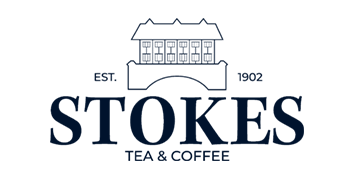
April is finally here – signifying the start of a much needed Spring. With this new season comes warmer weather and longer days, which traditionally has been a time for new beginnings or change. This is a good time for businesses to reflect on their operations, check progress and consider what they can be doing to stay on track to reach their goals.
Read on to discover why businesses should be using this time to prioritise implementing sustainability, and how specialist software can play a leading role in spring cleaning the supply chain to help reduce carbon emissions.
The new season is a good opportunity to focus on tasks that didn’t get given sufficient attention over the busy Winter period, as well as a chance to turn attention to long-term goals – like improving sustainability.
In the world of business, sustainability is a hot topic – and it’s never been more important for organisations to implement strategies that will reduce their environmental impact and improve their overall sustainability performance. The last few years have pushed issues of sustainability to the fore, and the initiatives and climate trends that have gained traction are increasingly becoming the norm, if not expected from businesses.
Sustainability is no longer optional for many businesses – and it looks increasing likely that engaging with environmental and social initiatives such as ESG and SECR reporting will become compulsory. As the deadline for Net Zero draws ever closer, it seems only logical that increasing pressure will be placed on organisations of all sizes to demonstrate what they are doing to advance their green credentials.
The implementation of initiatives which allude to an expanding sustainability reporting landscape are ongoing – but can be seen recently in the EU’s Corporate Sustainability Reporting Directive (CSRD).
Executed by the EU, this new framework is set to bring sustainability in line with financial reporting and will be rolled out gradually from 2024. It will, as described by The Carbon Trust: “require companies to report on how sustainability issues, such as climate change, impact their business and how their operations in turn affect people and planet – a unique principle called ‘double materiality’.”
Almost 50,000 companies are expected to be affected by this – constituting nearly three quarters of business in the European Economic Area. These companies will be expected to provide more detail when reporting on their sustainability, and also publish information in a dedicated section of their company management reports.[1]
Although this will only affect businesses in Europe, it highlights the growing pressure and obligations being placed on businesses to engage with reporting and sustainability initiatives.
Directives like this will only increase in prevalence, and it’s probable that the UK will implement similar measures – as has already been demonstrated by the introduction of legislation such as Streamlined Energy and Carbon Reporting (SECR).
There’s no better time to implement and advance sustainability measures – and the supply chain is a great place to start.
It’s no longer enough to practice or preach sustainability within the four walls of your business. Being truly sustainable means ensuring that your entire operations don’t exploit the planet’s resources, or the people involved in providing a service or commodity.
Examining business supply chains enables you to highlight any discrepancies in your operations and identify areas or third party suppliers which are unsustainable. This provides the information and insight needed to instigate the required change, which in practice, could look like switching suppliers, investing in new technologies or changing internal operations.
Looking to improve your supply chain sustainability?
Achieving true sustainability depends on sustainable procurement, and this means working with suppliers who have the right environmental credentials. However, this can often be difficult to gauge and measure, as it involves gathering large quantities of information which isn’t always readily available, accessible or reliable. This data then needs to be organised, analysed and compared – which can be an extensive and laborious task.
At AXIOM, Our specialist software offers an effective solution to this challenge, as it allows you to evaluate and compare suppliers against a range of sustainability criteria. This provides you with the key insights needed to make more informed decisions moving forwards.
From RFP and RFI to RFQ – our platform streamlines the RFx process, helping your business gather essential information about potential suppliers to establish compatibility.
Supporting organisations in their sustainability journey is at the heart of everything we do – and we are passionate about providing you with the right tools to make this easier.
To find out how we can help your business, or to book your free demo – please contact us today.
[1] Corporate Sustainability Reporting Directive (CSRD) explained | The Carbon Trust


Want to know more? Please get in contact with our team here.
Contact Us